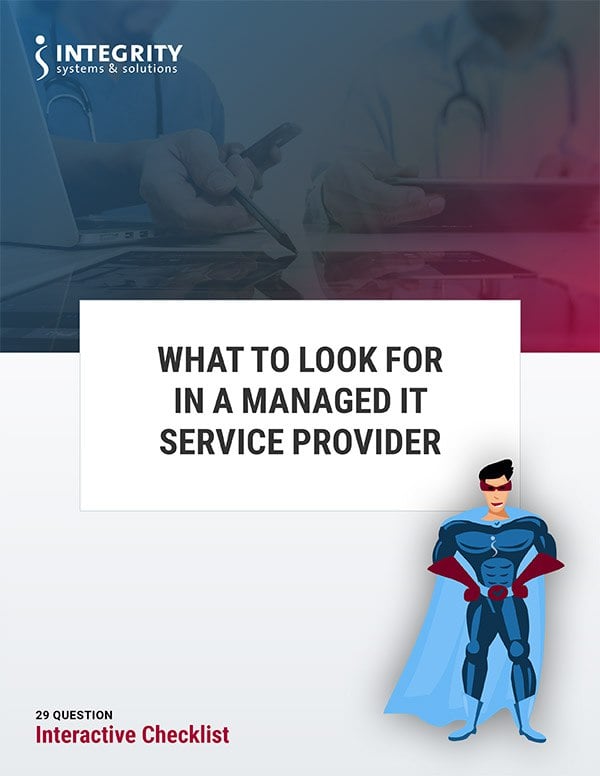The Integrity Blog
Insight into what questions dental and medical practices should ask managed IT providers as they are searching for one. The checklist also dives into red flags to be on the look-out for.
Communication is key when it comes to providing a better experience for your patients. Improvements in medical information technology have made it easier for practices to adopt new methods to securely communicate with and educate their patients. Not only are there better ways to reach out to your patients, but with the advancements in medical information technology your patients’ private information is secure and Health Insurance Portability and Accountability Act (HIPAA)-compliant. Electronic health records make it easier for you to help your patients understand what is being recorded, and how they can use their health information. Here are five ways you can use medical information technology in your practice.
Share
Congratulations! You’ve recently graduated from dental school, and you’re probably considering your options. One of your most fulfilling (yet most challenging) options is to open up your own practice. Or maybe you have been working as an associate dentist for an established practice, and now you want to be your own boss. You might be looking at purchasing an existing practice. Whether you build from scratch or buy a practice, opening up your own practice is not easy, and it’s not something you learn how to do in dental school. Over the years we’ve seen dozens of practices open. Some practices succeed and some struggle. As a professional, you want the opportunity to open your own practice and ultimately run it successfully. Here are some tips to make your practice start-up experience a successful one:
Share

Insight into what questions dental and medical practices should ask managed IT providers as they are searching for one. The checklist also dives into red flags to be on the look-out for.
As a dental professional, you pride yourself on delivering the highest caliber of dentistry. To continue putting your patients first, being proactive is crucial as advances in dental technology are made, especially regarding digital dentistry.
Share
One of the greatest and most costly threats to your dental or medical practice today is a data breach. The healthcare industry loses over $6 billion a year in dealing with the costs of compromised data. In 2017 alone, there were 477 healthcare data breaches, affecting nearly 5.6 million patient records. Your practice is not immune to these threats. Your office collects names, dates of birth, Social Security numbers, addresses, and entire medical histories. Because medical and dental practices collect so much sensitive information, they are particularly attractive to cybercriminals. Hackers will use many different methods to break into your network or website to steal information and sell it on the open market. Stolen data is then used to steal people’s identities.
Share
Data Security | Dental | Practice Continuity
In this age of electronic protected health information (ePHI), one of the greatest threats to your medical or dental practice is ransomware. Practices are facing this vulnerability more and more frequently. Sure, you’ve heard of ransomware, but do you know what it is and how to protect yourself from it?
Share
Now-a-days, almost every industry has been affected by information technology and the need to go digital. Communications, entertainment, shopping, and banking have all gone digital. Medical and dental practices are no exception.
Share